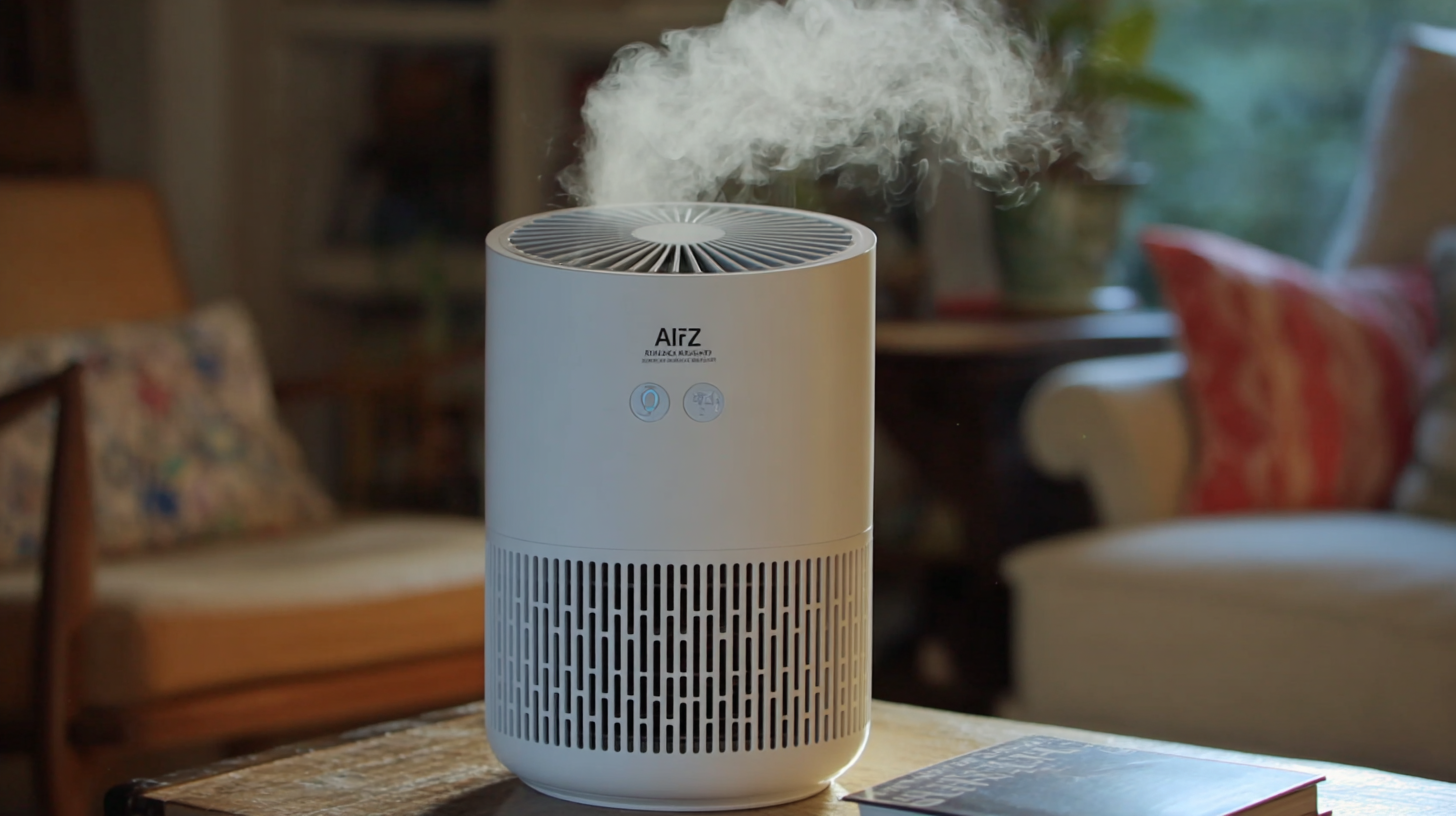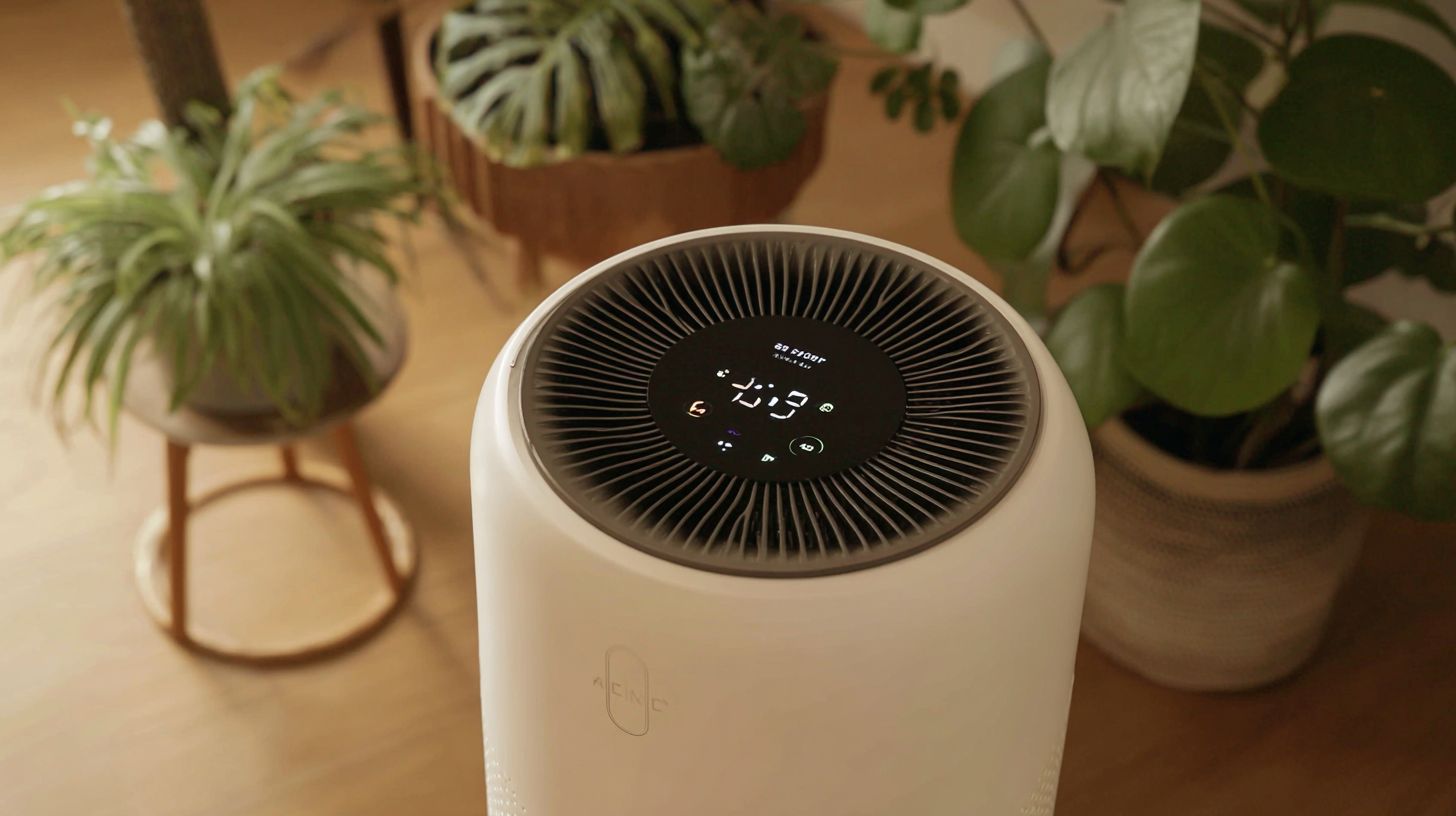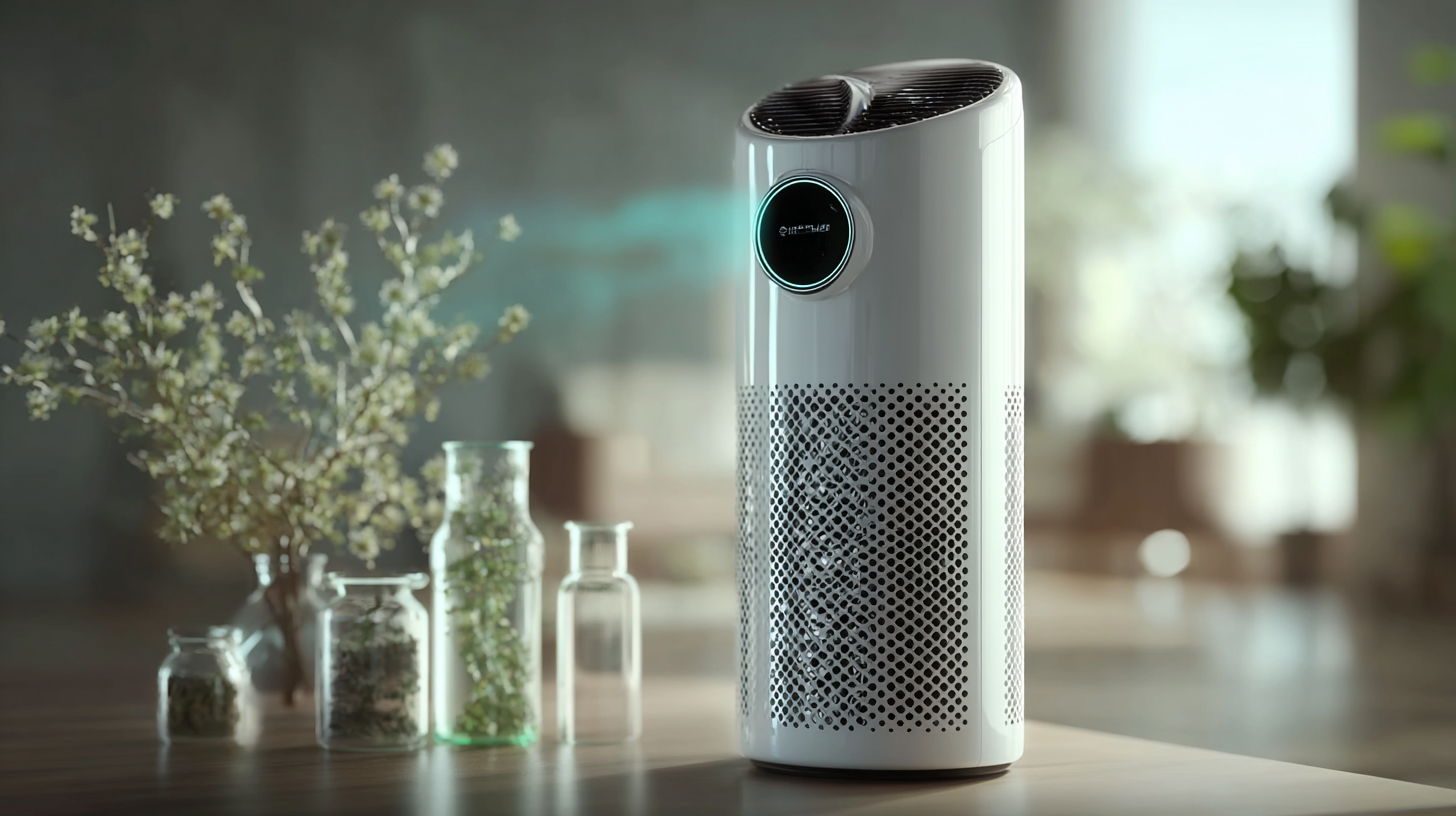
7 Compelling Reasons to Choose the Best Air Purifier Air Filter
In today’s world, where air quality has become a significant concern for health and well-being, the importance of an effective Air Purifier Air Filter cannot be overstated. According to a 2021 report from the World Health Organization, approximately 4.2 million premature deaths occur annually due to outdoor air pollution, while indoor air quality issues contribute to 3.8 million deaths. With growing awareness of airborne pollutants and allergens, the demand for high-quality air purification solutions has surged.

Research shows that the right air purifiers can remove 99.97% of particulate matter as small as 0.3 microns, significantly improving indoor air quality. In this blog, we will explore seven compelling reasons to invest in the best Air Purifier Air Filter, showcasing industry applications and the transformative effects of clean air on health and productivity.
Understanding the Importance of Air Purifiers for Health and Comfort
Indoor air quality is a critical consideration for maintaining overall health and comfort, especially in today's urban environments where pollutants can easily infiltrate our living spaces. According to the Environmental Protection Agency (EPA), indoor air can be two to five times more polluted than outdoor air. This alarming statistic underscores the importance of using air purifiers to mitigate health risks associated with airborne irritants, including dust, pollen, smoke, and volatile organic compounds (VOCs). Research indicates that air purifiers can significantly reduce these harmful particles, thus improving respiratory health and enhancing the quality of life.
Moreover, studies published in the Journal of Environmental Health demonstrated that effective air purifiers could decrease the incidence of asthma attacks by up to 20% in sensitive populations. With millions of individuals suffering from allergies and respiratory conditions, investing in a high-quality air purifier equipped with HEPA filters is essential for ensuring cleaner air. These devices not only capture 99.97% of particles down to 0.3 microns but also help provide a tranquil indoor environment by removing odors and reducing airborne allergens, making our homes healthier and more comfortable spaces to live in.
Key Features to Look for in a High-Quality Air Purifier
When selecting a high-quality air purifier, certain key features can significantly enhance its effectiveness. First and foremost, look for a True HEPA filter, which can capture 99.97% of particles as small as 0.3 microns. This type of filter is crucial for eliminating common allergens, dust, pet dander, and even some bacteria and viruses. Additionally, consider models with activated carbon filters that can absorb odors and harmful volatile organic compounds (VOCs), providing cleaner air not just in terms of particulates but also in odor control.

Another important aspect to evaluate is the Clean Air Delivery Rate (CADR) of the purifier. This metric indicates how quickly and efficiently the unit can filter air in a given room size. Choosing a purifier with a high CADR rating is essential in ensuring that your space remains fresh and healthy. Furthermore, look for features such as multiple fan speeds, smart sensors for air quality monitoring, and energy-efficient operation to get both performance and convenience. Selecting an air purifier with these key attributes ensures that you invest in a product that offers optimal air purification, improving your indoor environment significantly.
Evaluating Supplier Credentials: Trustworthiness and Reliability
When selecting an air purifier, evaluating supplier credentials is crucial for ensuring trustworthiness and reliability. This is particularly important in a market flooded with numerous options. A reputable supplier should provide transparent information on their product quality, warranties, and customer support. For instance, understanding a supplier's commitment to service can significantly influence your purchase decision.
Tips: Always check for customer reviews or testimonials about the supplier's support services. Look for any certifications that the product might have, as this can indicate compliance with industry standards. Furthermore, reaching out to the supplier with questions can give you a sense of their responsiveness and willingness to assist.
Additionally, consider the supplier's reputation within the industry. Engaging with suppliers who have established credentials can provide peace of mind, ensuring that your investment in an air purifier will not only enhance your indoor air quality but also come from a reliable source. Investing time in vetting suppliers can lead to better long-term satisfaction with your air purification system.
Cost vs. Quality: Making Informed Decisions for Air Filter Purchases
When it comes to selecting an air purifier, the debate between cost and quality is often at the forefront of consumer decisions. While budget-friendly options may seem attractive, investing in a higher-quality air filter can provide significant long-term benefits. Cheaper filters may require frequent replacement and often fail to capture smaller particulate matter effectively, leading to poorer air quality in your home. In contrast, premium filters offer better filtration capabilities, sometimes trapping up to 99.97% of airborne contaminants, which can be crucial for households with allergies or respiratory conditions.
Quality air filters not only improve your indoor air environment but also contribute to the longevity of your air purifier. By choosing a durable filter, you reduce the frequency of replacements and maintenance costs, ultimately saving money over time. Additionally, reputable brands often provide detailed specifications and performance metrics, allowing you to make informed decisions based on your specific needs. Balancing cost with quality ensures that you are not just purchasing an air filter, but investing in the health and well-being of your home and family.
Customer Reviews and Feedback: Gauging Supplier Performance and Product Effectiveness
When evaluating air purifiers, customer reviews and feedback can be crucial indicators of supplier performance and product effectiveness. According to a recent report by the American Lung Association, effective air purifiers can remove up to 99.97% of airborne particles, including dust, pollen, and pet dander. This high efficiency is often reflected in user ratings, where products demonstrating superior filtration capabilities frequently receive higher satisfaction scores.
To ensure a positive experience, consider seeking out air purifiers that have undergone independent testing by organizations like AHAM (Association of Home Appliance Manufacturers). Their certification guarantees that the device meets specific performance standards and can provide informed choices for consumers.
**Tip:** When reading reviews, pay attention to how long the product has been in use. Long-term performance is often a better indication of quality than initial impressions.
Additionally, look for feedback that highlights customer service experiences. A unit may perform well, but if the supplier lacks support when issues arise, it can lead to frustration.
**Tip:** Use social media platforms and community forums to find unfiltered feedback on air purifiers, as these can provide insights beyond the company's marketing claims. By carefully analyzing customer feedback, you'll be better equipped to choose an air purifier that not only meets your needs but also comes from a reputable supplier.

